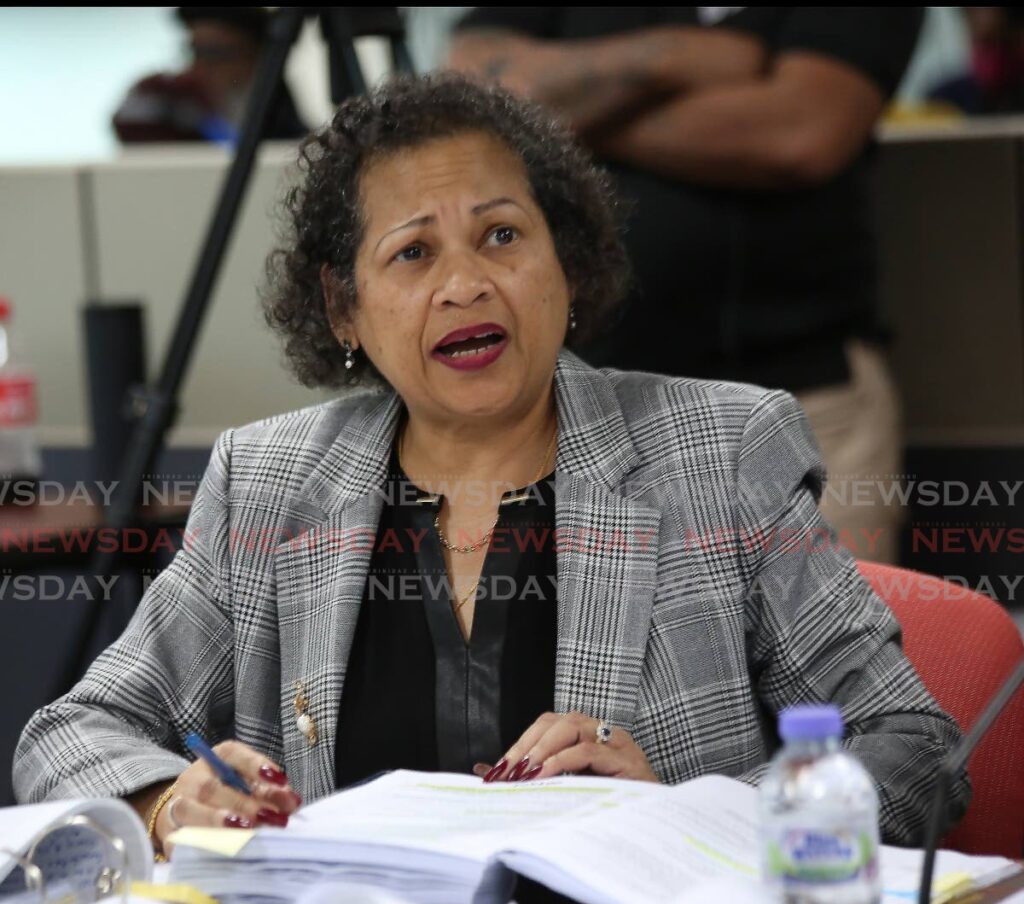Attorney: Higher safety standards needed for divers in Trinidad and Tobago

ATTORNEY Nyree Alfonso called for the introduction of mandatory safety standards for TT's commercial diving sector, on Wednesday at the Paria Commission of Enquiry (CoE), at the International Waterfront Centre, Port of Spain.
The CoE, under Jerome Lynch, KC, is probing last February's tragic deaths of four men sucked into an pipeline undersea belonging to Paria Fuel Trading Company Ltd at Pointe-a-Pierre, during which a fifth diver, Christopher Boodram, escaped.
Alfonso faulted Paria and LMCS for the tragic turn of events, plus a lack of compulsory standards for commercial divers, rather than the current voluntary ones.
She advocated safe working environments, conditions and systems, as counsel for the SWWTU – affiliated to the International Transport Workers Federation (ITF) and International Trade Union Conference (ITUC) – saying the International Labour Organisation (ILO) also wanted stricter standards in TT.
Recalling a Bureau of Standards witness statement that TT's commercial diving sector had only voluntary/optional standards, Alfonso urged "a mandatory framework" of standards which she said the authorities had not introduced despite TT being a mature oil province involving thousands of employees.
Alfonso explained the framework envisaged by the SWWTU.
"This would include prescribing minimum certification for persons undertaking commercial diving work, audit and certification of schools proving instructions to such persons, (and) inspections and audit of diving equipment.
"We would expect that the said regulatory framework would include robust powers of oversight, enforcement and prosecution of employers who depart from what would now be a mandatory regulatory framework."
She said if such standards had existed, the tragedy might not have occurred, or alternatively the divers could have been rescued after the Delta P event.
Alfonso said LMCS's proposal to do repairs using men equipped with scuba equipment had been clearly outlined in its tender and been accepted by Paria.
She said LMCS had broken no regulatory provisions by using scuba equipment to enter the habitat as no regulatory provisions required the use of commercial diving equipment involving surface-supplied air to divers who were harnessed and tendered from the surface.
"LMCS's diving supervisor admitted that, had the divers, at minimum, been harnessed by rope which could have been attached to their respective hips, then when the Delta P event occurred they could have been retrieved immediately," Alfonso said.
"And we would not be here today. And the family members from whom we have heard would not have experienced the heart-wrenching hurt that must have been attendant not only with the accident but with the management of same after the fact."
Still addressing LMCS's actions, she said the company's work plans did not involve its dive supervisor being geared up (ahead of the accident), LMCS had not provided a hyperbaric (decompression) to Christopher Boodram upon his escape from the pipeline, and did not share GoPro footage with Paria.
She lamented that the companies operated in silos and not in tandem to rescue the men.
Alfonso said LMCS had seemingly not considered the chances of an occurrence of a Delta P event, a "differential in pressure", that sucked the men into the pipeline.
"To the contrary, by removing an unquantified amount of line content (that is, water and/or oil) in sealine 36 and introducing air into the line, LMCS created the environment for the differential pressures to exist which ultimately led to the Delta P event which caused the five divers to be stuck in the pipeline.
"Even though LMCS was a well-experienced contractor, they failed to recognise the inherent risk to their divers in removing the habitat and the decommissioning of the air compressor that was pumping oxygen into same and for that matter removing the flange at berth five."
Regarding Paria, Alfonso said the company had no expertise to evaluate, supervise and monitor the repair job, including not knowing how much content was removed from the pipe to create an air space known as an ullage.
She claimed Paria did not call in any companies to help in the rescue, but just told the Coast Guard to stop unauthorised divers entering the pipeline. Alfonso claimed Paria had first wanted to determine conditions in the line yet had bypassed Boodram's narrative to find about the divers' location and condition, towards effecting a rescue.
She estimated that the four trapped men could have been just 120 feet away from the elbow or just one-tenth of the way along the horizontal pipe.
"Paria did not allow willing, able and capable divers to attempt a rescue," Alfonso claimed.
Alfonso said a diver could have crafted a plan, but noted Paria first wanted three documents.
While saying Paria had not been in any easy position, she insisted Paria must accept that they made "very wrong decisions" on that night and the day after, which ultimately cost the men their lives.
"While Paria's officials were happy to distance themselves from LMCS's work plan because it was a turnkey project where the company (Paria) could rely on a specialist contractor, Paria ultimately did not allow the same specialist contractor to undertake or to co-ordinate a well-planned and well-equipped rescue attempt."

Comments
"Attorney: Higher safety standards needed for divers in Trinidad and Tobago"